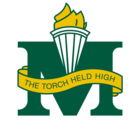The Life Academic Work Skills (LAWS) program provides an alternative non-credited classroom program for students with mild/moderate to severe cognitive delays and a significant impact on their adaptive functioning. LAWS focuses on functional literacy and numeracy skills (which are adapted or modified learning outcomes from the Alberta Programs of Study), personal and social development, daily living skills, vocational skills, and recreation and leisure skills. Students are involved in community activities, outings, work placements, and inclusive opportunities with their High School peers to further develop their skills. Students enrolled in the LAWS program have access to individualized programming and support and lower teacher-to-student ratios, while continuing to access universal supports offered at the school. Administrators, Inclusive Education Lead (IELs), teachers, educational assistants, therapists, Student Services facilitators, and other consultants collaborate with parents and students (where applicable) to provide the support required by students. Additionally, students have access to an on-site sensory space as well as adaptive communication tools, as needed.
At the successful completion of Grade 12, LAWS students are encouraged to participate in the school’s convocation exercises, and awarded a Certificate of Completion. LAWS alumni may consider entering the workforce, community based programming, or attending a Transitional Vocational Program at a post-secondary institution.
Every student has an equal right to education in the school system with their age appropriate peers. For some students, in order to promote a successful transition to adulthood, their education is recommended to extend beyond the classroom to include non-school environments. Through this integration, students will acquire the living and working skills necessary for continued pursuit of independence upon convocating from high school.
When students enter the program, competence is presumed. Literacy and numeracy are identified as life skills and a comprehensive approach is utilized in daily instruction by ensuring all students have a voice, a way to write, a way to read, and a way to engage.
Philosophy
Every student has an equal right to education in the school system with their age appropriate peers. The Education Act currently states that an individual “who at September 1 in a year is six years of age or older and younger than 19 years of age” may access education. For some students, in order to promote a successful transition to adulthood, their education is recommended to extend beyond the classroom to include
non-school environments. Through this integration, students will acquire the living and working skills necessary for continued pursuit of independence upon graduation from high school. When students enter the program, competence is presumed. Literacy and numeracy are identified as life skills and a comprehensive approach is utilized in daily instruction by ensuring all students have a voice, a way to write, a way to read, and a way to engage.
Eligibility
To be eligible for this program, a student's Individual Education Plan (IEP) and relevant psycho-educational testing must identify their need for specialized programming. Placement in this program is through an individual intake with the student, present school, parents and high school staff. The personalized details of the programming will be established at that time.
